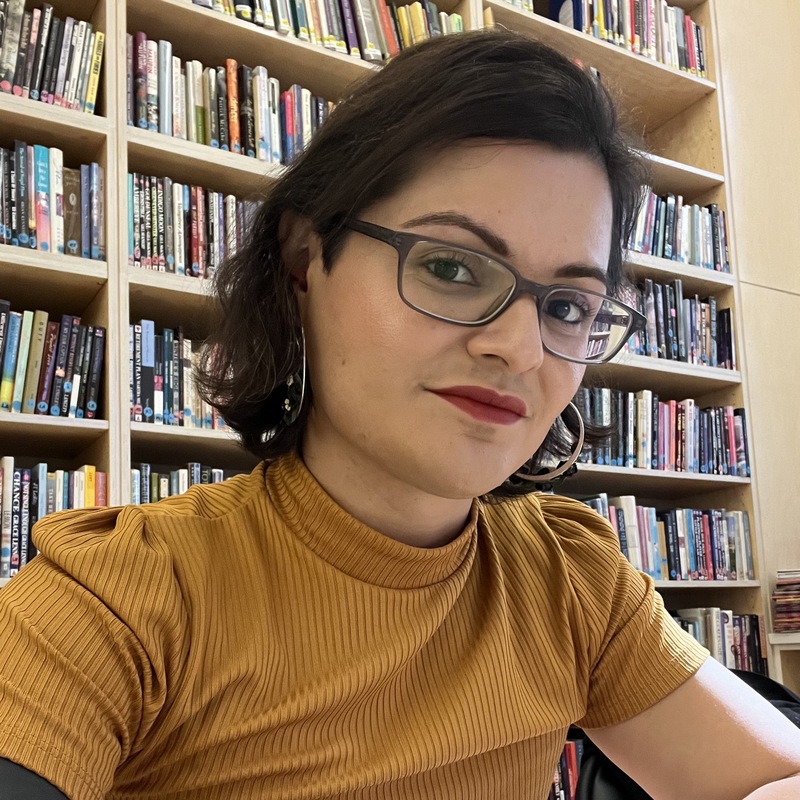Digital Transgender Archive
Grants
Mellon Foundation Grant (2024-2027)
In August 2024, the DTA received grant funding of $500,000 from The Mellon Foundation to establish the DTA’s West Coast hub at the Oakland campus of Northeastern University.
This new hub draws upon the DTA’s accomplishments and strong West Coast partnerships, Mills College’s historic commitment to women and minoritized groups, the Bay Area’s centrality to the movement for LGBTQIA+ rights, and Northeastern University’s commitment to humanities-grounded impact to expand the material presence of Trans Studies.
This project greatly expands the opportunities created by the DTA – offering spaces where activists, scholars, and community members can gather and learn, and wherein transgender people can see the long arc of their community’s history.
Our Project
This new hub allows us to deepen our existing Bay Area partnerships, develop new collaborations, and launch digitization initiatives with Bay Area archives. We are deeply committed to the continued growth of brick-and-mortar trans-related archival collections. We have deployed digital tools to expand access to these collections and encourage further donations of resources and historical materials. Yet, without commensurate increases in digital access to transgender history, many of those who need to access these important records will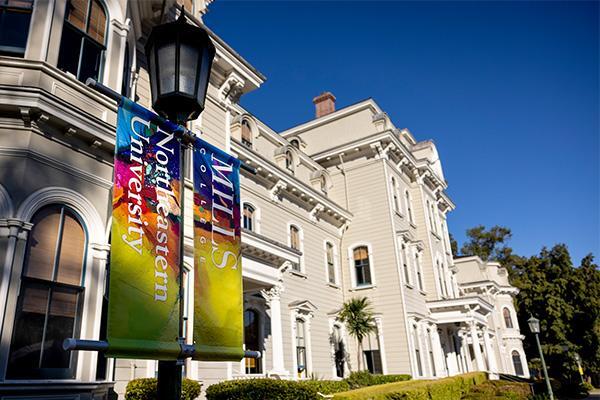 continue to have limited ability to do so.
continue to have limited ability to do so.
Given the important role that the Bay Area has played in transgender history and the rich troves of historical materials held at archives there, we see a key opportunity to expand the DTA’s collaborations, collections, and impact with focused growth in this area.
To establish the DTA at Mills, we’re hiring an Assistant Director to facilitate collaborations in the Bay Area, oversee the creation of the lab, hire and supervise students, and contribute to the project's leadership.
As we have done on the Boston campus, the DTA lab will offer a range of student opportunities––such as research assistant and co-op positions, independent studies, and applied research projects.
CLIR Grant (2022-2025)
In spring 2022, the DTA received $334,000 in grant funding from the Council on Library & Information Resources, or CLIR, Hidden Collections: Amplifying Unheard Voices grant program.
CLIR is an American nonprofit organization that works with libraries, cultural institutions, and education communities to develop strategies to improve various research, teaching, and learning environments.
The purpose of this program is to fund projects that digitize materials to deepen public awareness and understanding of BIPOC stories and experiences, especially those that have been historically disregarded in archives.
Our Project — “Y’all Better Quiet Down”: Trans BIPOC Digitization Initiative
 This project is a 10-member collaboration led by the DTA to digitize a wide range of materials documenting transgender, gender non-conforming (GNC), and gender-expansive Black and Indigenous people of color (BIPOC).
This project is a 10-member collaboration led by the DTA to digitize a wide range of materials documenting transgender, gender non-conforming (GNC), and gender-expansive Black and Indigenous people of color (BIPOC).
Subjected to multiple layers of marginalization, trans BIPOC communities generally do not have access to or sustained involvement in archival initiatives, even those focused on LGBTQ+ history. By focusing exclusively on trans BIPOC histories, this initiative takes seriously the extent of the systemic and widespread trans BIPOC archival erasures. Without this type of dedicated and robust initiative, the overrepresentation of white trans people in archives will continue unchecked and insufficiently addressed.
With this grant, the DTA will digitize and make available ~20,500 pages of mixed archival materials, ~600 images, and 22 audiovisual items, and we will develop outreach projects including a 4-episode podcast, an 8-part video series, and several lesson plans. The materials included in this digitization initiative relate to organizations, events, and people across the U.S. and Canada.
Our hope is that this initiative will inspire deeper connections between archives and trans BIPOC communities, ideally resulting in increased donations to archives and subsequent efforts that similarly seek more equitable archival representation.
Collection Highlights
- Cassette tapes and a VHS tape with interviews of Sylvia Rivera and Marsha P. Johnson
- Mixed archival materials related to Rupert Raj, Mirha Soleil-Ross, and Red Jordan Arobateau, including correspondence, scrapbooks, and clippings
- Two-Spirit community newsletters, magazines, photo collections, and clippings
- Photograph collections, including noted performers such as Sir Lady Java and Stomé DeLarverie
- Community-focused serial publications
- Mixed archival materials relating to the film The Queen (1968) featuring Crystal LaBeija
Resources
Collaborators
United States
- American Antiquarian Society: The American Antiquarian Society is a national research library of American history, preserving and sharing American stories for over 200 years.
- Harry Ransom Center, University of Texas, Austin: The Harry Ransom Center is a humanities research center with extensive collections providing unique insights into the creative processes of the world’s finest writers and artists.
- The Lesbian, Gay, Bisexual, and Transgender Community Center: The Center is a community center that offers the LGBTQ+ communities of NYC advocacy, health and wellness programs; arts, entertainment and cultural events; recovery, parenthood and family support services.
- Louise Lawrence Transgender Archives: The Louise Lawrence Transgender Archive aims to increase the understanding of transgender people and encourage scholarship by making transgender historical materials publicly available.
- ONE Archives at University of Southern California Libraries: ONE Archives at the USC Libraries is the world’s largest repository of LGBTQ+ materials, encouraging public awareness and scholarship on queer histories.
- OUTWORDS: OUTWORDS captures, preserves, and shares the stories of LGBTQIA2S+ elders, documented through interviews in audio, video, and written form.
- Tretter Collection, University of Minnesota: The Tretter Collection is a repository of LGBTQ+ archival materials, especially strong in materials documenting the history of LGBTQ people, organizations, and communities in the Upper Midwest.
Canada
- The ArQuives: The ArQuives is one of the largest independent LGBTQ2+ archives in the world, dedicated to gathering stories of the unheard and silenced voices of the LGBTQ2+ community.
- Transgender Archives, University of Victoria: The Transgender Archives actively acquires documents, rare publications, and memorabilia of persons and organizations that have worked for the betterment of Trans+ people.
- Two-Spirit Archives, University of Winnipeg: The Two-Spirit Archives aims to develop a center for research in support of the Two-Spirit community and make Two-Spirit people visible in documentary heritage.
Community Board
 |
Kylar W. Broadus is a Black trans man that has been a pioneer in the movement as an attorney, long-time activist, public speaker, author and professor. Broadus is known worldwide for his avant-garde work in the LGBT and Trans movements. |
|
|
|
 |
Julie Fiveash is Kinyaa’áanii born for Naakai. Their maternal grandfather’s clan is Táchii’nii and their paternal grandfather is Bilagaana. Their pronouns are they/them/theirs and they identify as non-binary. They hold a MLIS degree from UCLA and currently work at Harvard University’’s Tozzer Library as the Librarian for American Indigenous Studies where they prioritize developing ways that the library can create inclusive research spaces and guides for Indigenous researchers and students. |
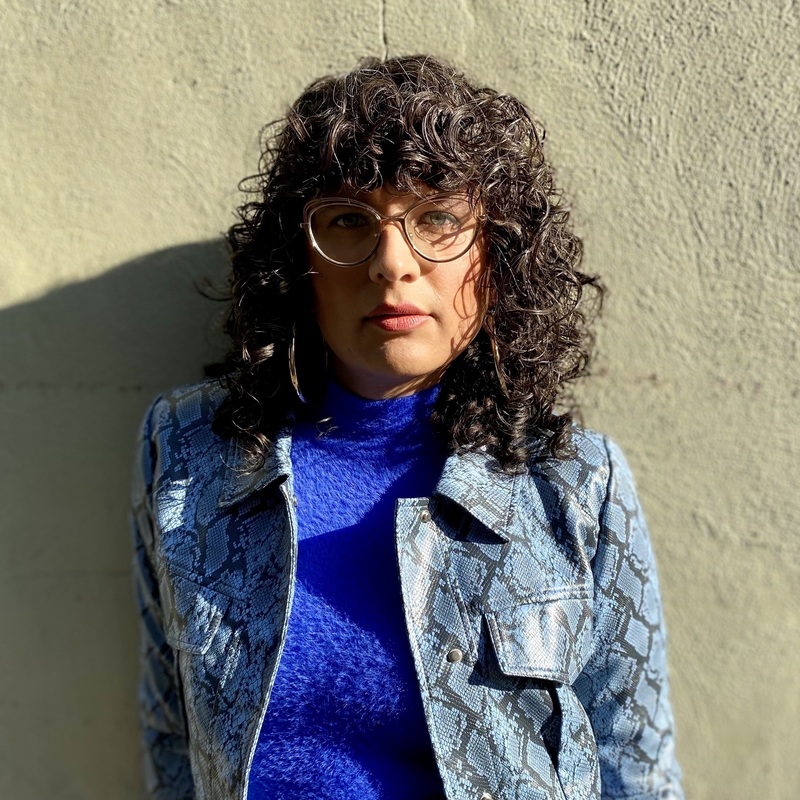 |
Jules Gill-Peterson is an associate professor of History at Johns Hopkins University. She is the author of Histories of the Transgender Child (University of Minnesota, 2018) and a General Co-Editor of TSQ: Transgender Studies Quarterly. Her next book, A Short History of Trans Misogyny, will be published by Verso Books. |
|
|
|
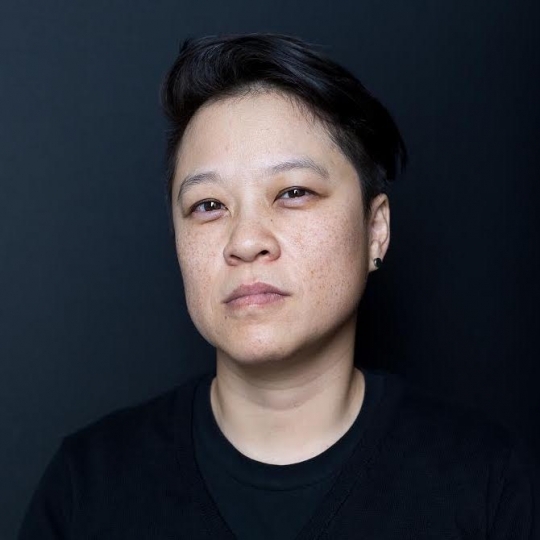 |
Umi Hsu is a trans nonbinary public humanist and digital strategist. Hsu is currently the Director of Content Strategy at ONE Archives Foundation. Previously, they led digital initiatives at the City of Los Angeles Department of Cultural Affairs. They have published on digital media, data, and Internet culture; taught at ArtCenter College of Design, USC, and Occidental College; and received fellowships and awards from National Endowment for the Arts and American Council for Learned Society. With a PhD from the Music Department at University of Virginia, Hsu is a sound artist, musician, and founding member of LA-based band Bitter Party. |
|
|
|
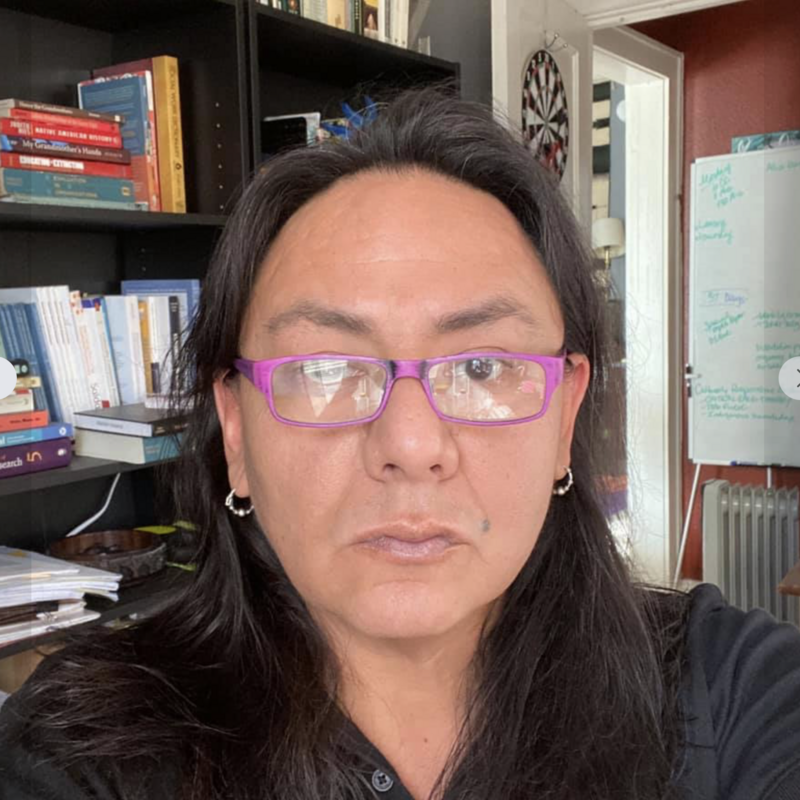 |
Nicholas “Nick” Metcalf, Cetanzi (Yellow Hawk), MSW. Nick is an enrolled member of the Rosebud Sioux Tribe - Sicangu Oyate (Burnt Thigh People). Nick is faculty in the Social Work program at Metropolitan State University, St. Paul. Nick graduated this summer 2014 with a Ph D from the University of Minnesota in the Organizational Leadership, Policy, and Development. Nick is a proud parent and grandparent. Nick is a writer and a poet. |
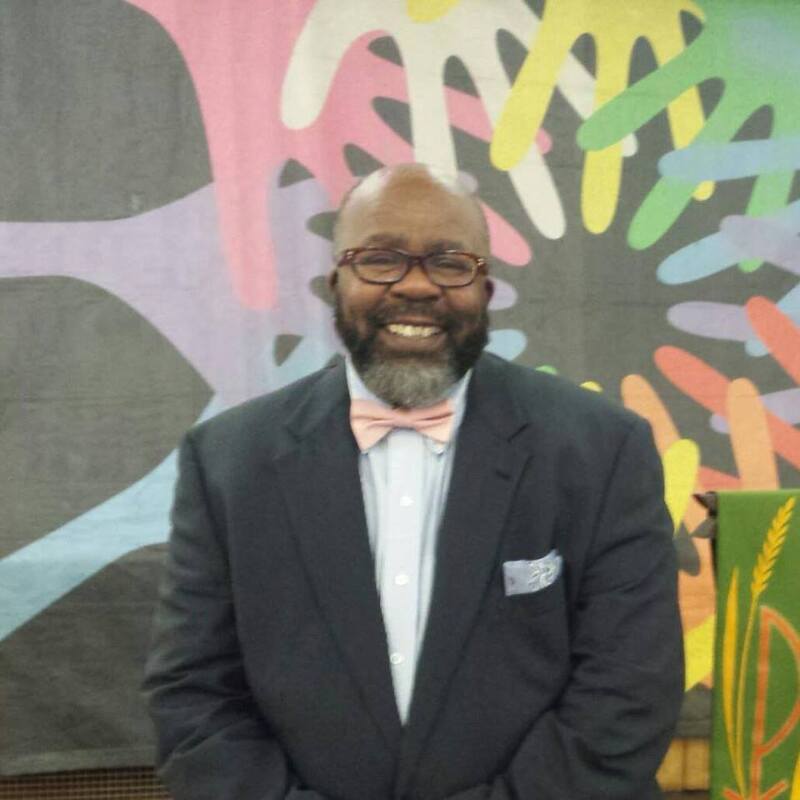 |
Rev. Louis J. Mitchell is an "intentional man". An activist for nearly four decades, his focus is the fight for health and healing, self-determination and respect for all, with a focus on trans folks of all identities and their families. He currently serves as the Senior Pastor of Rincon United Church of Christ in Tucson Arizona. He believes in the restorative power of truth telling in the voices of those whose stories are often told about them rather than with them. |
|
|
|
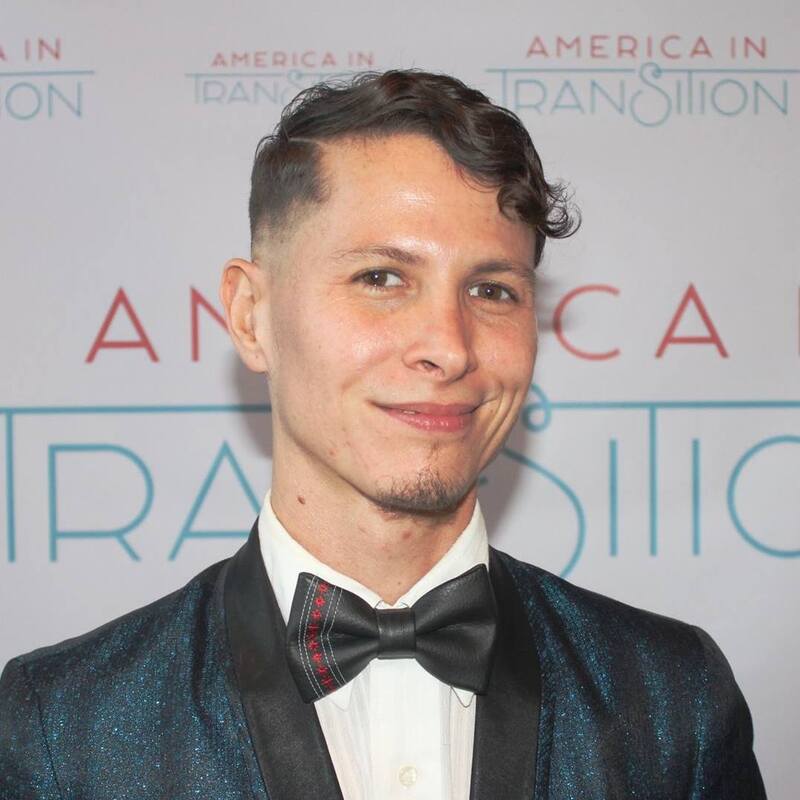 |
André Perez is a nonbinary and Latinx historian, educator, filmmaker, and organizer whose work centers collaborative storytelling. He founded the Transgender Oral History Project in 2007; played a key role in several LGBTQ+ nonprofit start-ups including the Trans Lifeline; and Directed America in Transition, a Sundance-backed docuseries featuring BIPOC trans folks. They creative produced A RUN FOR MORE, which premiered at Frameline in 2022, and is currently producing DESIRE LINES, a hybrid documentary exploring trans masculinity within gay cruising culture through interviews, archival materials, and time-traveling narrative sequences. |
|
|
|
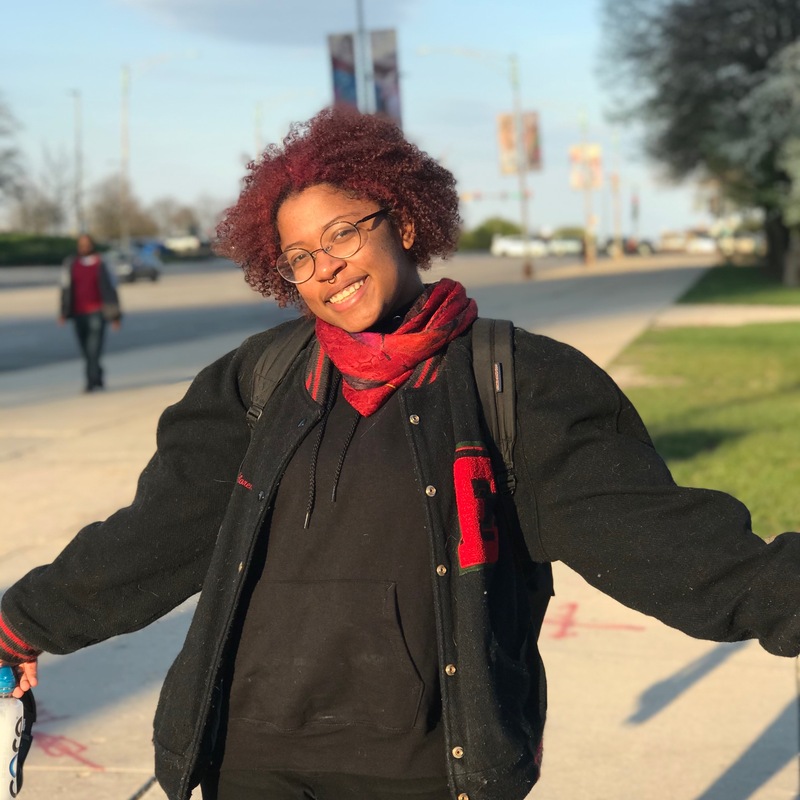 |
River Toomer is a transmasculine lesbian activist of African American and Tsalagi Freedman descent. He is working on achieving a Master of Library and Information Science and a Master of Arts in Youth Literature with a focus in archivism. His main academic interests are anti-intellectualism and Marxist feminism. He currently resides in Chicago and works with multiple food sovereignty and housing justice organizations. He strives to teach others about Indigenous land ethic and why food justice cannot exist without it. |
|
|
|
|
|
Daniela Valdes (Chair) is a PhD candidate in the Department of History at Rutgers University specializing in urban and social history and the carceral state. Valdes’ dissertation explores the political cultures of Black and Latinx queer/trans communities in the New York/New Jersey metropolitan area. Valdes is an oral historian and community researcher who collaborates with grassroots groups, including most recently the Rikers Public Memory Project and Movimiento Cosecha. |
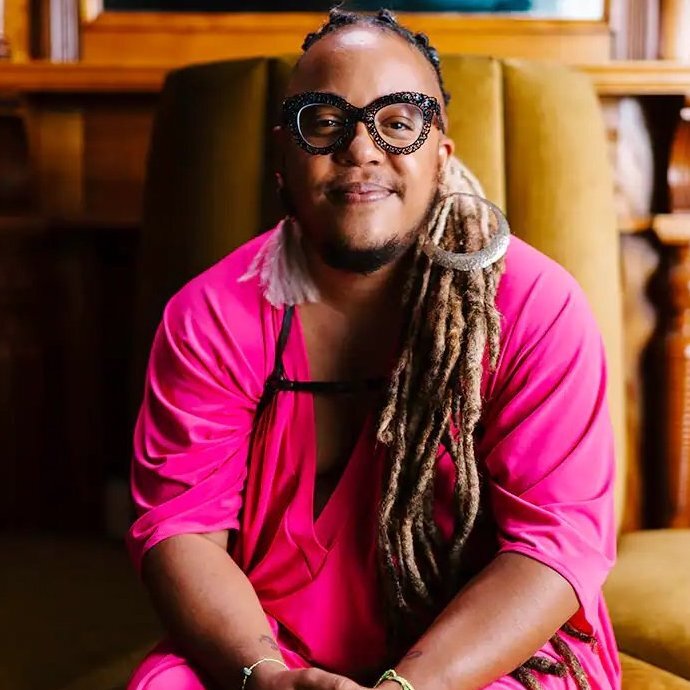 |
Syrus Marcus Ware is a Vanier Scholar, visual artist, activist, curator, and educator. Syrus is an Assistant Professor at the School of the Arts, McMaster University. Using painting, installation, and performance, Syrus works with and explores social justice frameworks and Black activist culture. His work has been shown widely, including solo shows at Grunt Gallery in 2018 (2068:Touch Change) and Wil Aballe Art Projects in 2021 (Irresistible Revolutions). His work |
Past Community Board Members
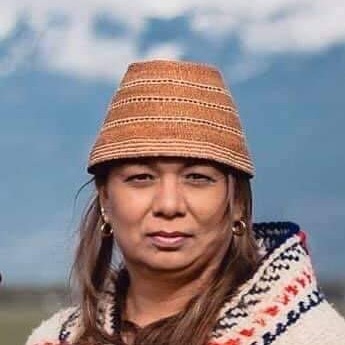 |
Saylesh Wesley is a two-spirit educator and Knowledge Keeper who is of Coast Salish and Tsimshian decent. Currently she works as an Indigenous Enhancement Education Teacher for the Chilliwack School District and also continues to present at a wide variety of events as it relates to her two-spirit and indigenous teachings. |
